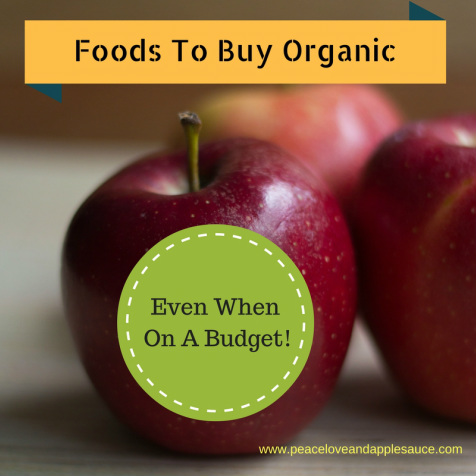~What's The Deal With Decaf?~
By Janine Bibeau
Many of us think "going decaf" is the healthiest choice, particularly when a woman is pregnant or nursing. We are told by our doctors that cutting back on caffeine is the healthiest choice for our babies. What they don't tell us is that the process in which some types of coffee is decaffeinated may have potential risks.
By Janine Bibeau
Many of us think "going decaf" is the healthiest choice, particularly when a woman is pregnant or nursing. We are told by our doctors that cutting back on caffeine is the healthiest choice for our babies. What they don't tell us is that the process in which some types of coffee is decaffeinated may have potential risks.
Almost four years ago, I participated in a whole foods cleanse. I learned so much about myself during those 28 days. One of the most important lessons that I learned was that my love of coffee was not serving me at all. The caffeine was causing my anxiety to skyrocket and was aggravating to my digestive system.
I also significantly cut down on my refined sugar intake at the same time. I fully omitted these two things from my diet (with the exception of special occasions for sugar). Not long after doing so, I found that I had less headaches, my blood sugar regulated and I had less shaking, I sweat less, had less bloating, and nearly no heartburn at all.
Omitting caffeinated beverages and eating very little refined sugar was life changing for me!
After having a baby, and being somewhat sleep deprived, I craved coffee. I love the smell, the taste, and the ritual of it. I started having a cup of decaf in the morning. I was shocked when I learned how some decaf coffee is made. Read on to see what I found in my research!
I also significantly cut down on my refined sugar intake at the same time. I fully omitted these two things from my diet (with the exception of special occasions for sugar). Not long after doing so, I found that I had less headaches, my blood sugar regulated and I had less shaking, I sweat less, had less bloating, and nearly no heartburn at all.
Omitting caffeinated beverages and eating very little refined sugar was life changing for me!
After having a baby, and being somewhat sleep deprived, I craved coffee. I love the smell, the taste, and the ritual of it. I started having a cup of decaf in the morning. I was shocked when I learned how some decaf coffee is made. Read on to see what I found in my research!
There are three processes that can be used to decaffeinate coffee.
1. The Direct Process uses methyl chloride or ethyl acetate to remove caffeine. Methyl Chloride is listed as a possible carcinogen by the National Cancer Institute but considered "safe" by the FDA because only trace amounts end up in your coffee. Because the coffee is roasted at a high temperature, they believe that the compounds most likely vaporize.
Using ethyl acetate is considered to be a "natural method" because this compound is naturally found in some fruits, however it is a synthetic version that is used in the decaffeinating process. Synthetic is not natural and is a risk in my book.
Our FDA has approved too many unhealthy "foods" for me to believe that using these two chemicals are truly safe. Especially if you plan on drinking coffee decaffeinated by these chemicals daily.
2. The Water Method, or Swiss Method, uses only filtered water and a charcoal filter to decaffeinate. This is usually specified on the coffee's packaging, but if you are buying organic coffee it most likely has been decaffeinated using this technique.
3. The last method is the newest method. It uses liquid CO2 is used to remove the caffeine.
The Direct Process, which uses one of two chemicals in the decaffeinating process, sends up immediate red flags for me. There does not seem to be a whole lot of readily available information on the CO2 process. So, in my opinion, the water process is the safest and I buy coffee made using this method.
It is also important to note that your decaf is not completely caffeine free. The FDA requires that 97% of caffeine be removed in order for it to be considered decaffeinated. Depending on the type of bean, that could mean that your decaf actually has up to 18 milligrams of caffeine!
Cheers!
1. The Direct Process uses methyl chloride or ethyl acetate to remove caffeine. Methyl Chloride is listed as a possible carcinogen by the National Cancer Institute but considered "safe" by the FDA because only trace amounts end up in your coffee. Because the coffee is roasted at a high temperature, they believe that the compounds most likely vaporize.
Using ethyl acetate is considered to be a "natural method" because this compound is naturally found in some fruits, however it is a synthetic version that is used in the decaffeinating process. Synthetic is not natural and is a risk in my book.
Our FDA has approved too many unhealthy "foods" for me to believe that using these two chemicals are truly safe. Especially if you plan on drinking coffee decaffeinated by these chemicals daily.
2. The Water Method, or Swiss Method, uses only filtered water and a charcoal filter to decaffeinate. This is usually specified on the coffee's packaging, but if you are buying organic coffee it most likely has been decaffeinated using this technique.
3. The last method is the newest method. It uses liquid CO2 is used to remove the caffeine.
The Direct Process, which uses one of two chemicals in the decaffeinating process, sends up immediate red flags for me. There does not seem to be a whole lot of readily available information on the CO2 process. So, in my opinion, the water process is the safest and I buy coffee made using this method.
It is also important to note that your decaf is not completely caffeine free. The FDA requires that 97% of caffeine be removed in order for it to be considered decaffeinated. Depending on the type of bean, that could mean that your decaf actually has up to 18 milligrams of caffeine!
Cheers!
http://drinks.seriouseats.com/
http://www.coffeeconfidential.org/health/decaffeination/
http://www.coffeereview.com
http://www.foxnews.com/food-drink/2014/08/25/truth-about-decaf-coffee.html
http://www.coffeeconfidential.org/health/decaffeination/
http://www.coffeereview.com
http://www.foxnews.com/food-drink/2014/08/25/truth-about-decaf-coffee.html








 RSS Feed
RSS Feed